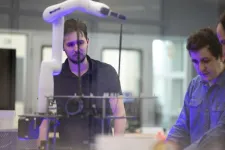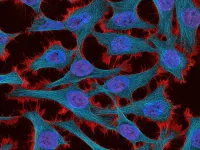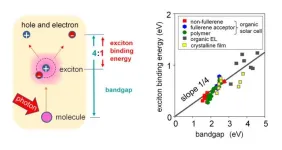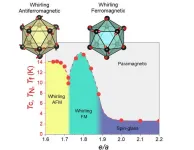The program is managed by the NSF in collaboration with the United States Office of Personnel Management and the U.S. Department of Homeland Security. FAU is one of only six universities to receive the NSF CyberCorps award this year.
Designed to increase the volume and strength of the nation’s cybersecurity workforce, the program provides full scholarships and stipends to students pursuing studies at the intersection of cybersecurity and AI.
“This dynamic program will help to address an immense shortage of highly trained experts in the field of cybersecurity,” said Hari Kalva, Ph.D., principal investigator, interim chair and professor, FAU Department of Electrical Engineering and Computer Science within the College of Engineering and Computer Science. “We have a longstanding commitment to our students as well as robust course offerings related to cybersecurity to make this program a success. We are excited to contribute in developing a highly skilled cybersecurity workforce to address the needs of our nation and state.”
The FAU project team has developed an integrated cybersecurity workforce development model that combines foundational preparation through coursework, deeper skill development with cutting-edge research, practical experience with internships, and integrated professional development. Activities for professional development, including certifications will be integrated into the program to prepare scholarship recipients for a cybersecurity career in the federal government. This project further leverages the deep faculty expertise and course offerings to drive student training and skill development at the intersection of cybersecurity and thematic areas of AI, post-quantum cryptography, and hardware security.
Students will gain a broad understanding of cybersecurity opportunities in the federal government and will be trained to compete and secure jobs in the federal government. They will graduate with deep skills and preparation in cybersecurity and will serve the national security needs by completing their service obligation. Students who will be recruited for this program will receive a two-year scholarship and training that prepares them for competitive employment in the federal and/or state cybersecurity workforce.
Co-PIs of the project are Hanqi Zhuang, Ph.D., associate dean and professor, FAU College of Engineering and Computer Science; Nancy Romance, Ph.D., research professor – engineering education, Department of Electrical Engineering and Computer Science, FAU College of Engineering and Computer Science; Francesco Sica, Ph.D., assistant professor, Department of Mathematical Sciences, FAU Charles E. Schmidt College of Science; and Nataliia Neshenko, Ph.D., assistant professor, Information Technology and Operations Management Department, FAU College of Business.
“Our team’s expertise, along with the expertise of the broader FAU faculty community in the thematic areas of the project will provide critical training to our students,” said Kalva. “Moreover, student engagement in research is expected to advance faculty research at the intersection of cybersecurity, AI, post-quantum cryptography, and hardware security.”
The project team also has identified collaborators with experience in addressing the cybersecurity needs of the federal government, who will contribute to a rich set of extracurricular activities. These activities will serve multiple purposes, including attracting and recruiting students, educating them about the benefits and challenges of working for the federal government, and assisting them in securing internship opportunities and jobs.
“The cybersecurity talent gap is a major concern for our nation. To maintain a leading role in cybersecurity, the U.S. needs a strong and robust cybersecurity workforce to develop the next generation infrastructure and technologies,” said Stella Batalama, Ph.D., dean, FAU College of Engineering and Computer Science. “This prestigious NSF-funded project, spearheaded by professor Kalva in collaboration with an outstanding project team, is a testament to the quality of research, academics, collaboration and outreach at FAU. As cyber threats continue to become increasingly complex, our project will help to prepare a well-trained cybersecurity workforce in Florida that will serve the federal and state government.”
According to the National Initiative for Cybersecurity Careers and Studies, there are more than 570,000 open cybersecurity positions in the U.S. with an increase of 35 percent in the last year.
This project aligns with the U.S. National Cyber Strategy to develop a superior cybersecurity workforce. Following graduation, scholarship recipients are required to work in cybersecurity for a federal, state, local or tribal government organization for the same duration as their scholarship support.
- FAU -
About FAU’s College of Engineering and Computer Science:
The FAU College of Engineering and Computer Science is internationally recognized for cutting-edge research and education in the areas of computer science and artificial intelligence (AI), computer engineering, electrical engineering, biomedical engineering, civil, environmental and geomatics engineering, mechanical engineering, and ocean engineering. Research conducted by the faculty and their teams expose students to technology innovations that push the current state-of-the art of the disciplines. The College research efforts are supported by the National Science Foundation (NSF), the National Institutes of Health (NIH), the Department of Defense (DOD), the Department of Transportation (DOT), the Department of Education (DOEd), the State of Florida, and industry. The FAU College of Engineering and Computer Science offers degrees with a modern twist that bear specializations in areas of national priority such as AI, cybersecurity, internet-of-things, transportation and supply chain management, and data science. New degree programs include Master of Science in AI (first in Florida), Master of Science and Bachelor in Data Science and Analytics, and the new Professional Master of Science and Ph.D. in computer science for working professionals. For more information about the College, please visit eng.fau.edu.
About Florida Atlantic University:
Florida Atlantic University, established in 1961, officially opened its doors in 1964 as the fifth public university in Florida. Today, the University serves more than 30,000 undergraduate and graduate students across six campuses located along the southeast Florida coast. In recent years, the University has doubled its research expenditures and outpaced its peers in student achievement rates. Through the coexistence of access and excellence, FAU embodies an innovative model where traditional achievement gaps vanish. FAU is designated a Hispanic-serving institution, ranked as a top public university by U.S. News & World Report and a High Research Activity institution by the Carnegie Foundation for the Advancement of Teaching. For more information, visit www.fau.edu.
END




